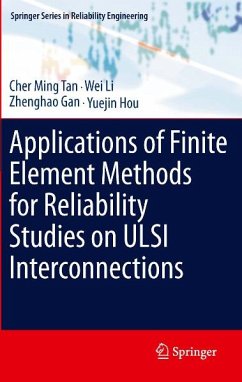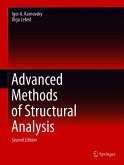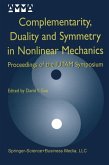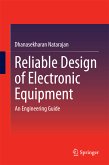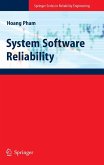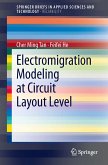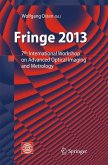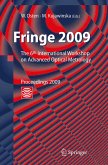To help readers cope with the increasing sophistication of FEMs' applications to interconnect reliability, Applications of Finite Element Methods for Reliability Studies on ULSI Interconnections will:
- introduce the principle of FEMs;
- review numerical modeling of ULSI interconnect reliability;
- describe the physical mechanism of ULSI interconnect reliability encountered in the electronics industry; and
- discuss in detail the use of FEMs to understand and improve ULSI interconnect reliability from both the physical and practical perspective, incorporating the Monte Carlo method.
A full-scale review of the numerical modeling methodology used in the study of interconnect reliability highlights useful and noteworthy techniques that have been developed recently. Many illustrations are used throughout the book to improve the reader's understanding of the methodology and its verification. Actual experimental results and micrographs on ULSI interconnects are also included.
Applications of Finite Element Methods for Reliability Studies on ULSI Interconnections is a good reference for researchers who are working on interconnect reliability modeling, as well as for those who want to know more about FEMs for reliability applications. It gives readers a thorough understanding of the applications of FEM to reliability modeling and an appreciation of the strengths and weaknesses of various numerical models for interconnect reliability.
Dieser Download kann aus rechtlichen Gründen nur mit Rechnungsadresse in A, B, BG, CY, CZ, D, DK, EW, E, FIN, F, GR, HR, H, IRL, I, LT, L, LR, M, NL, PL, P, R, S, SLO, SK ausgeliefert werden.

